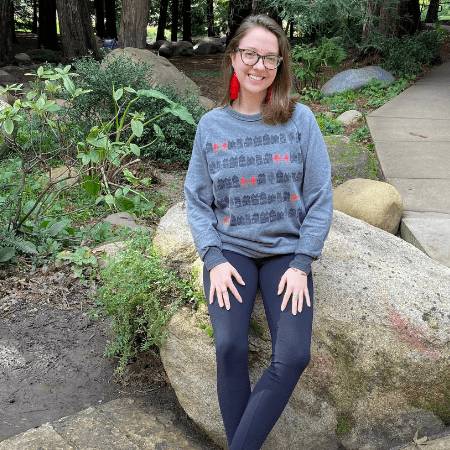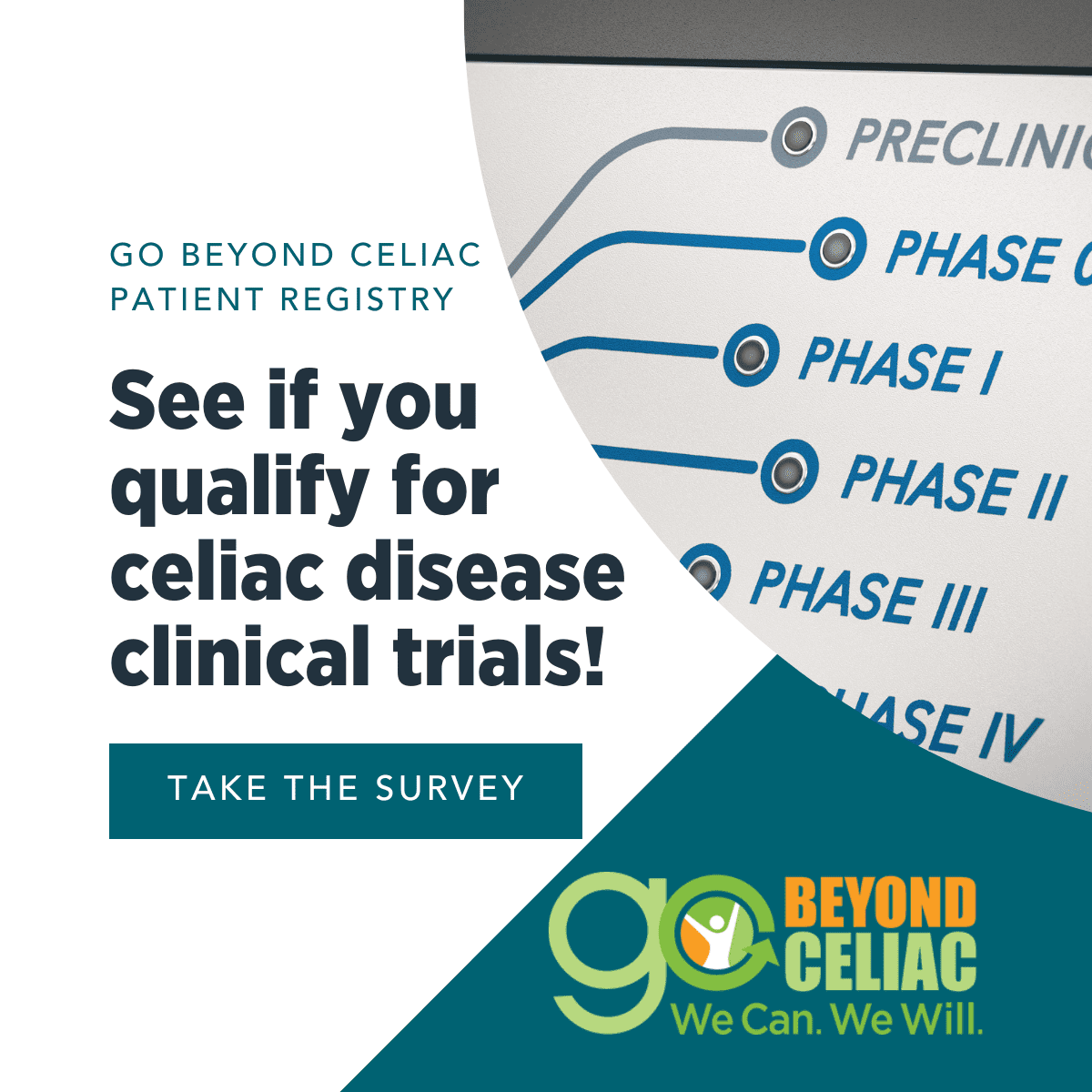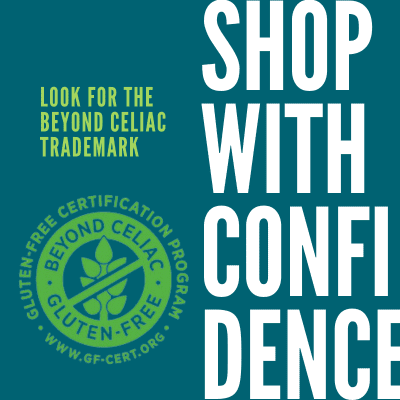“I feel very strongly about giving back in any way I can. Service is central to my morals and values, and this was an opportunity to be able to do that specifically for this part of my life that to most people is minuscule, but is really big for me. And to be able to build a community within ourselves, and then also use that power to go out and spread that same community, it’s really a unique thing.”
Meet Lauren Menagh (San Francisco, California)
As Lauren Menagh prepared to live abroad in Spain for two years, a celiac disease diagnosis was the last obstacle she could have ever expected. “It started with a lot of digestion problems: bloating, and just generally not feeling good any time after I ate,” Lauren explains. “I noticed it especially with alcohol or any type of rich food. That was the first indicator I brought to the doctor and so she started with an elimination diet approach.”
“I actually brought up the potential that I could have celiac disease because a friend had mentioned it and said it was something I should talk about with my doctor. So I brought it up, and there was a little bit of my own pushing for that, but overall I think I was lucky in the sense that I didn’t have to argue or really fight back against the medical system to get a diagnosis.”
After her diagnosis, Lauren not only had to learn how to keep herself safe and navigate the gluten-free diet, but she also had to prepare to do so miles away from home. “It was a huge shift. I mean, it’s not just changing your diet, it’s changing your whole life and the way you think about buying food and planning your days. So, in the beginning, it was very rocky, and there was a pretty steep learning curve, but I just threw myself into research and spent hours Googling everything I could find,” Lauren recalls, “And not only did I have to think about my current day-to-day life, but also how I was going to be able to live gluten-free abroad, so I also researched eating gluten-free in Spain. I was pretty reassured because it seemed like it was actually a really friendly country for celiac disease, and it was, thankfully!”
Abroad, Lauren adapted to the gluten-free diet, learning to communicate her needs in both English and Spanish. “In my experience of traveling, I had to be extra vigilant because there was a language barrier, and so I think a silver lining of that was that I forced myself to go deeper into my experience of living abroad—to really study the language and the vocabulary in order to fully express my needs, and that actually made me a little bit more comfortable with expressing my needs because I was doing it in a different language,” Lauren explains. “If I had been doing it in English, I don’t know if there would have been as much intention behind it. In a way, it strengthened my voice, and then when I came back home to the U.S., I was so comfortable. It really solidified my identity of having celiac disease and how to help myself in all areas of life, no matter where I am in the world.”
Despite her successes in advocacy, the gluten-free diet is not without its continued difficulties. Restaurants, social situations, and finding celiac-safe options continue to challenge her, regardless of Lauren’s ability to communicate her needs. “I think what still remains the biggest challenge is having that feeling of otherness or not being able to easily do what everyone else is doing in a social situation. I think it’s common for people with celiac disease to feel like they’re missing out on life and experiences. You know, if you’re just casually grabbing dinner with friends, you can’t just sink down into a restaurant booth and be like, ‘Let’s share everything!’ It’s an added element of preparation and just constantly being aware.”
Now back home in San Francisco with years of experience under her belt, Lauren hopes to focus on the silver linings of celiac disease as a Reach Beyond Celiac Ambassador and help others manage their diagnosis and find the positives. “There was a switch in my attitude about it in the beginning. I thought, ‘I could either look at this just in a really doom and gloom type way, like my life is over, or I could turn this into advocacy and being passionate about treating myself and helping others through this,’ explains Lauren, “And having celiac disease has actually opened up opportunities in my life. When I was living in Spain, I happened to make a great friend who I’m still close with because we were both in a gluten-free café, and she heard me speaking English. We instantly had this connection, and I think those are the silver linings: being able to make connections and friends with someone who understands deeply on the same level what you’re going through.”
One of those positives that Lauren focuses on is the hope for a cure for celiac disease by 2030—a treatment Lauren hopes could lessen the psychological impacts of the disease. “It would just be a huge weight off all of our shoulders, and I think it would honestly mean better mental health for so many people. It would just eliminate so much worry and confusion, especially for people who don’t have the same resources and access that I did when I was diagnosed. It would be life changing. It would be a huge, huge accomplishment, and that is definitely another reason I was drawn to Beyond Celiac. I’d never even thought that there was research being done to find a cure, so to know that is just really inspiring.”
Donate here to support our Ambassador program.



